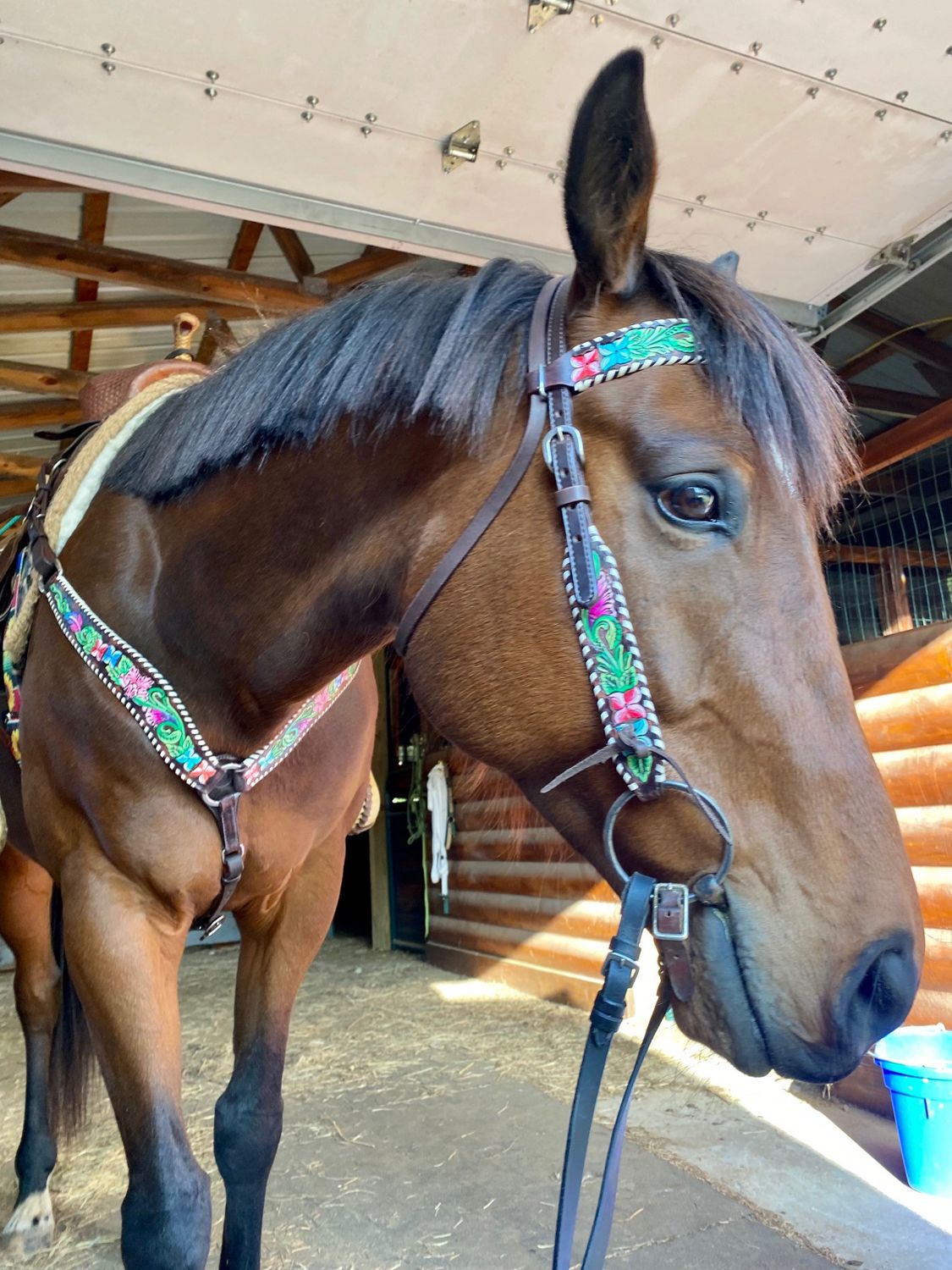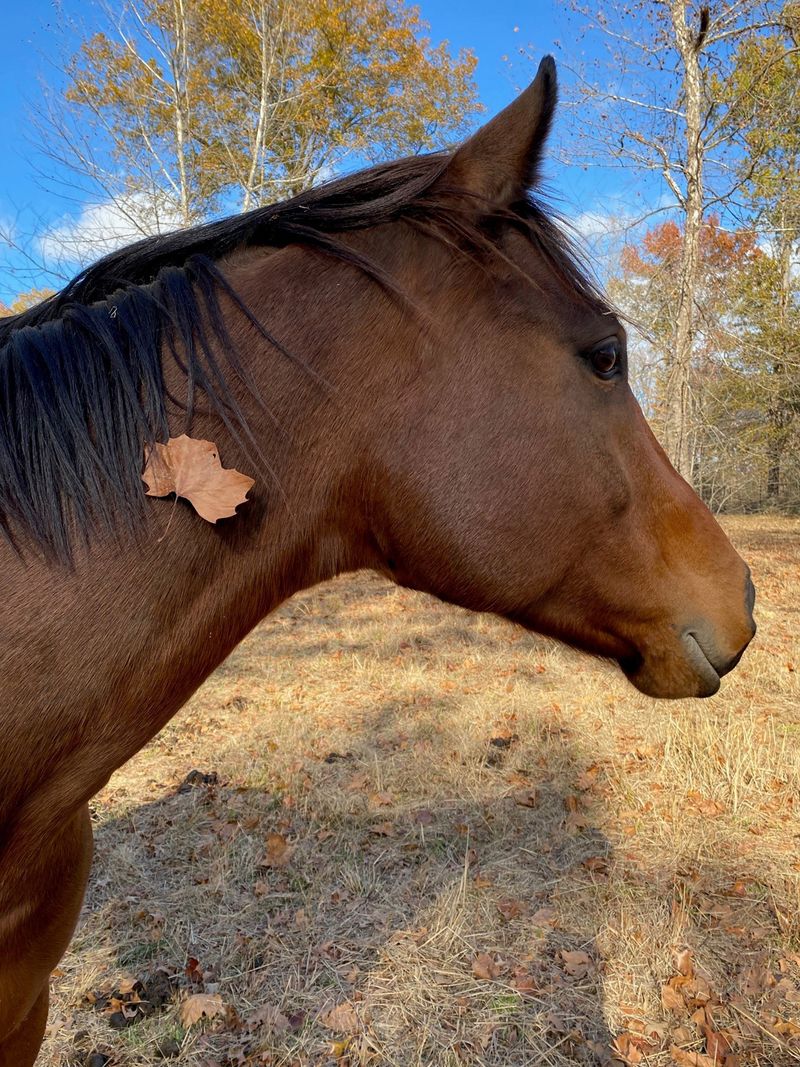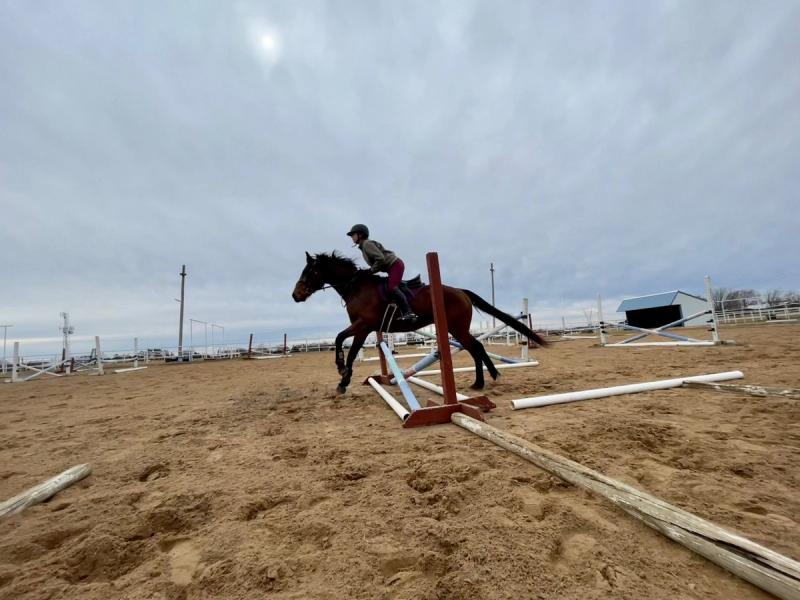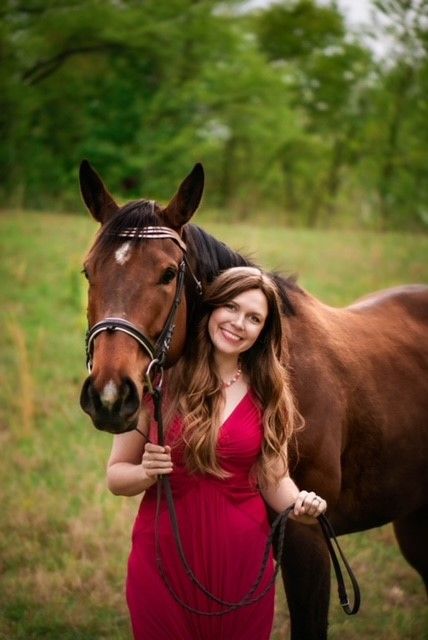The Time My Gelding Choked
What to do during this alarming problem


Pelleted grain made its comforting sound as it hit my gelding Zeppelin’s feed pail. I patted him, taking in a quiet night at the barn. Bliss…
But after a few bites, he suddenly began struggling to take a breath. He coughed and coughed as gobs of fluid and feed issued from his nostrils. At first, he was alarmed, then lethargy took over as the green-like liquid oozed.
With help from our veterinarian, who so kindly took the after-hours call, he was fine after the passage of a nasogastric tube to remove the blockage.

Can happen to any horse
Forage like hay or alfalfa cubes are the most frequent cause of choke in horses. Choke in older horses, or horses with poor dental health, can be common. But any horse, no matter their age, is at risk. Tony Hawkins, DVM, Valley Vet Supply Technical Service Veterinarian, recommends horse owners, “Soak grain and forage-based pellets and cubes to help horses better chew it up and help them pass it down.”
There are several symptoms of choke in horses and they can include feed material coming from the nostrils, hypersalivating, retching, coughing and other signs similar to colic in horses, according to the American Association of Equine Practitioners (AAEP). This can be a dangerous condition—one to take seriously.
Most commonly, choke in horses is caused by eating concentrated feed too quickly.
When the feed is not chewed up appropriately, it is not softened with saliva, according to AAEP, which details how “…this forms a firm bolus that gets lodged in the esophagus.”
Taking immediate steps
If you see a horse choking, and it’s not resolved on their own within 30 minutes, call your veterinarian to come out or haul them to the clinic if you have to. Always have a backup veterinarian/24-hour clinic in mind.
Other steps:
- Gently massage their throat beginning from the top, down.
- Remove access to food and water, as both could predispose them to aspiration
- Choke can sometimes resolve on its own, as the saliva will break down the food matter so it can pass through.
But again, follow the 30-minute rule above and phone a veterinarian if not passed through by that time.
DO NOT:
- Attempt helping your horse pass the blockage yourself. An esophagus puncture could be fatal.
- Accidentally worsening the situation, some horse owners pull up the horse's head to ‘help’ him pass a blockage. This only lodges it further.
Is there a treatment?
Treatment for esophageal choke in horses often requires that a veterinarian sedate the horse before passing a nasogastric tube to clear the obstruction, while simultaneously flushing with water to remove the lodged material.
A second approach may be used by veterinarians, the AAEP notes. Based on the theory that most chokes eventually self-cure, horses may receive several rounds of sedation, as the medications help to relax the esophageal muscles, coupled with fluids to keep the horse hydrated. Should treatment be too delayed, horses risk dehydration or death.
Beware the after-effects
The AAEP describes how the after effects of choke in horses can be as dangerous as the choke itself, stating “Most importantly, chokes predispose horses to aspiration pneumonia, which is caused by feed material going down the trachea and into the lungs. This foreign material in the lungs can cause the horse to develop a secondary bacterial infection.”
It’s not uncommon for veterinarians to prescribe antibiotics for your horse to help mitigate the risk.
After a choke episode, monitor your horse’s temperature for several days. A fever is one of the first signs of pneumonia.
Other symptoms include nasal discharge, coughing, and labored breathing and increased respiratory rate. Normal respiration rate in a horse is 10 to 14 breaths per minute.

Take steps to keep your horses safe. Continue learning about horse health at ValleyVet.com.
About the author
Aimee Elyse Robinson draws from her lifelong experience with horses. She and her husband live on an Oklahoma ranchette that’s also home to off-track Thoroughbreds, and rescue and foster dogs.
By Aimee Elyse Robinson, Valley Vet Supply Content Manager
August 18, 2023
Tags:Horse Sense

Acreage Life is part of the Catalyst Communications Network publication family.
















